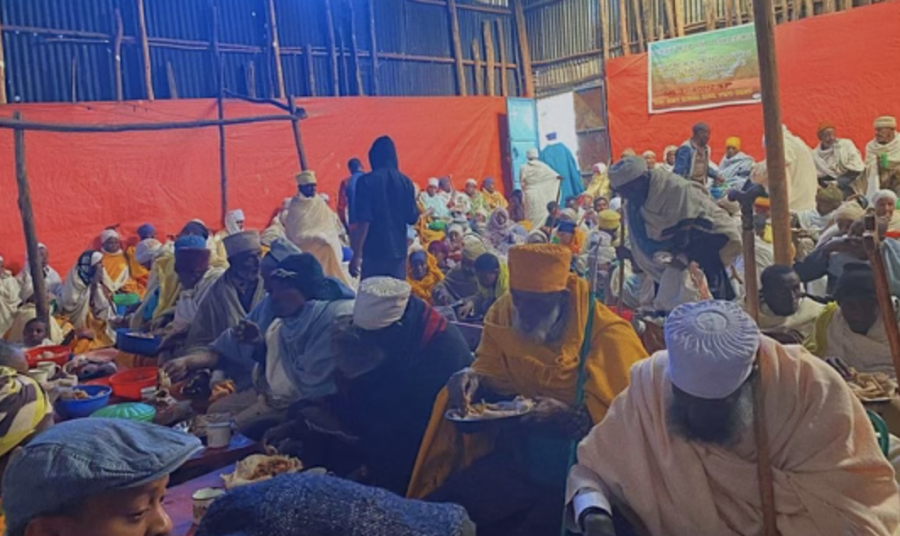Religious observance requires rethinking
Photo courtesy of Elysia Wossen
In Ethiopia, Orthodox holidays are a means for people to give back to their community. Junior Elysia Wossen’s family arranged annual soup kitchens for the homeless during their holidays. The sense of togetherness created by important holidays must be preserved.
December 16, 2021
FCPS has implemented a new policy of religious observance days to be more inclusive towards all faiths. These efforts may seem inadequate, however, when neighboring counties have these holidays off from school.
“I feel very included that [Prince William County] has allowed for days off on Eid and Diwali,” said sophomore Oishe Tabassum, who attends Woodbridge Senior High School. “Ever since I was little, holidays like Christmas and Hanukkah were always off from school, so finally I can enjoy my holidays off as well.”
Students generally agree that the school board should follow suit with other counties and give students the day off instead of maintaining the current religious observance policy.
“I think it would be better if we had days off from school instead of having religious observance days. When students come to school on [religious observance days], we often do not gain anything from attending our regular classes,” said junior Hajer Anjum.
The broad scope of the guidelines makes many teachers confused as to what assignments may be given on these days. As a result, teachers hand out busy work to students, expecting those absent to complete it on their own time.
“I’ve had teachers assign lengthy, packed assignments for subjects we have already been introduced to on [religious observance days]. It’s not new, so, under the policy, it’s alright,” said junior Elysia Wossen. “I think all students and teachers learned through online school how one missed assignment or lesson is like quicksand—once you’re in, it’s difficult to come back to solid ground.”
In addition to the lacking educational use, simple observance may just be the bare minimum when it comes to acknowledging the religious and cultural diversity of FCPS students.
“If the school does not want to sacrifice more days, they should use religious observance days to educate other students on what that holiday is and about with correct information,” offered junior Eliza Gill-Koch.
The implementation of observance days has relieved students from the concerns of a crucial test coinciding with an important holiday. In previous years, such reasons caused students to be stuck in school on a day meant for celebration, thus stripping away the prominence of the holiday.
Oftentimes, these holidays are a few of the only days out of the year where students can congregate with family and friends that may live further away. The holidays themselves tie back to the cultural roots and heritage of minority faiths. Maintaining these connections is another reason why students must spend this time away from school.
“In Orthodox Christianity, every holiday is celebrated extravagantly. Family comes over, stews are shipped in from Ethiopia, and traditional clothing is worn. From early morning to late evening, the day is rich with activities, colors, and festivities. It has become extremely significant for me over the two years [I have lived in Virginia], as these celebrations have become therapy for me every time I feel homesick. It reminds me that no matter how far I am from my homeland, my culture will always be within my family and me,” expressed Wossen.
Despite arguments over the effectiveness of religious observance days, this new policy is at least a step in the right direction.
“This new policy shows a lot of growth within our school system. Before, many people like myself would have to find loopholes and ways to get a day off from school to observe their religious holiday, but this is no longer an issue. It’s nice to know that if I decide to take a day off for Eid, I don’t have to worry about making up any missed assignments or tests. Having that peace of mind also makes celebrating any religious holidays a lot more enjoyable,” said Anjum. “I hope to see further progress in the future.”





